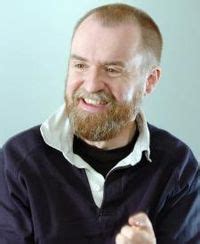A Quote by Ralph Waldo Emerson
Man is the broken giant, and in all his weakness both his body and his mind are invigorated by habits of conversation with nature.
Related Quotes
When Heaven is about to confer a great office on a man, it first exercises his mind with suffering, and his sinews and bones with toil ; it exposes his body to hunger, and subjects him to extreme poverty ; it confounds his undertakings. By all these methods it stimulates his mind, hardens his nature, and supplies his incompetencies.
It is God's earth out of which man is taken. From it he has his body. His body belongs to his essential being. Man's body is not his prison, his shell his exterior, but man himself. Man does not "have" a body; he does not "have" a soul; rather he "is" body and soul. Man in the beginning is really his body. He is one. He is his body, as Christ is completely his body, as the Church is the body of Christ
The master in the art of living makes little distinction between his work and his play, his labor and his leisure, his mind and his body, his information and his recreation, his love and his religion. He hardly knows which is which. He simply pursues his vision of excellence at whatever he does, leaving others to decide whether he is working or playing. To him he's always doing both.
Man in his raw, natural state as he comes from the womb is morally and spiritually corrupt in disposition and character. Every part of his being-his mind, his will, his emotions, his affections, his conscience, his body-has been affected by sin (this is what is meant by the doctrine of total depravity)
The evil of the actual disparity in their ages (and Mr. Woodhouse had not married early) was much increased by his constitution and habits; for having been a valetudinarian all his life, without activity of mind or body, he was a much older man in ways than in years; and though everywhere beloved for the friendliness of his heart and his amiable temper, his talents could not have recommended him at any time.
No one can sense his own weakness is at least a small temptation is not allowed to afflict either his body or his soul. Then, comparing his weakness to the help of God, a man comes to know its magnitude. But whoever does not know that he needs God's help, let him make many prayers. Insofar as he multiplies them, in that measure will he be humbled.
A library represents the mind of its collector, his fancies and foibles, his strength and weakness, his prejudices and preferences. Particularly is this the case if, to the character of a collector, he adds - or tries to add - the qualities of a student who wishes to know the books and the lives of the men who wrote them. The friendships of his life, the phases of his growth, the vagaries of his mind, all are represented.
Pain! Deep, tearing, throbbing, needle-sharp, hammer-blunt pain – ripping through his body and through his mind, twisting deep in his guts and slicing at his skin with razors and broken glass. Oskan wanted to scream, but his vocal cords had burned away. He was desperate for water and he could hear it dripping all around him, but his charred tongue found nothing in his mouth but blisters and scorched flesh. For hours he lay on the ropes of the low bed, unable to move, the pressure of the hemp on his destroyed skin sending new agonies deep into his body.
He is not the soul of Nature, nor any part of Nature. He inhabits eternity: He dwells in a high and holy place: heaven is His throne, not his vehicle, earth is his footstool, not his vesture. One day he will dismantle both and make a new heaven and earth. He is not to be identified even with the 'divine spark' in man. He is 'God and not man.









































